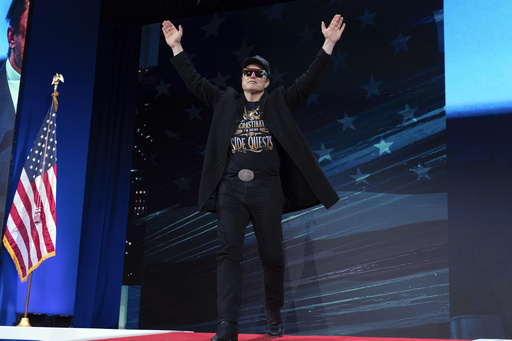In Washington, tension has escalated as over 20 civil service employees have announced their resignation from the Department of Government Efficiency, advised by billionaire Elon Musk. This mass departure is a reaction to what they describe as the misuse of their expertise to “dismantle critical public services.” These staff members, originally part of the United States Digital Service, expressed in a resignation letter that their commitment to public service and constitutional duties had been compromised, making continuation untenable. They alerted that the current administration’s approach includes advisors lacking necessary skills, driven by ideological motives rather than practical governance efficacy.
The exodus, consisting of engineers, data experts, and designers, poses a challenge to Musk’s partnership with President Trump in the ambition to reduce governmental scale and function. This initiative faces multiple legal obstacles aiming to prevent the layoff of numerous federal employees. White House press secretary, Karoline Leavitt, responded dismissively to these resignations, asserting that opposition, whether in protests or legal forms, would not impede President Trump’s agenda to streamline government functions.
Musk, on his platform, labeled the coverage of these events as “fake news,” implying that the resigning employees had political affiliations contrary to his administration’s agenda and would have been dismissed regardless. The resigning group had previous positions at renowned technology companies and joined under a premise of public service dedication, which is now questioned due to the integration into DOGE.
The foundational issue, as outlined by the resigning staff, lay in the approach of some recruiters, lacking technical comprehension, and using interviews to question political alignment rather than technical prowess. This secretive recruitment practice raised security concerns. Recently, a separate round of layoffs had already diminished the capacity of the office to manage important government technological initiatives, threatening the integrity and safety of citizen data and public service systems.
Remaining staff within DOGE continue to face discontent, with further resignations highlighting a refusal to undermine fundamental governmental infrastructures. The initial proposal for DOGE in Trump’s campaign had been of an external advisory nature but shifted towards more intrusive governmental involvement under Musk’s influence. Musk has embraced this role with characteristic flamboyance, notably at a recent conservative conference where he dramatized his dedication to bureaucratic reduction.
Attempts to preserve technical talent within the governmental operation have seen layoffs disproportionally affecting non-engineering roles, although criticism persists about the potential misuse of data access under Musk’s guidance. Some former USDS members observed Musk’s team encountering a realization of the complexity of government workings, something veteran staff learned to appreciate over time.
The USDS, from its inception, aimed to revamp public service technology, experiencing its share of challenges within the bureaucratic landscape, but managed to leave a lasting impact with initiatives such as improving veterans’ services and technological procurement processes. The tumultuous environment under Musk’s influence reflects broader ideological battles over the role and scope of government, with both supporters and critics deeply entrenched.


